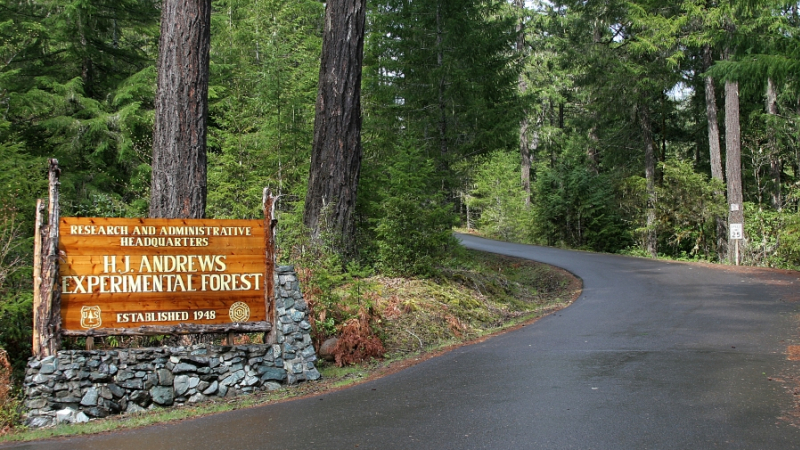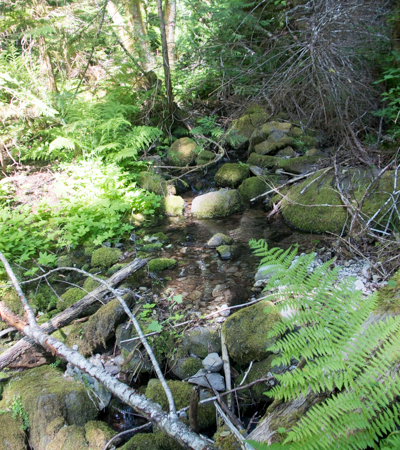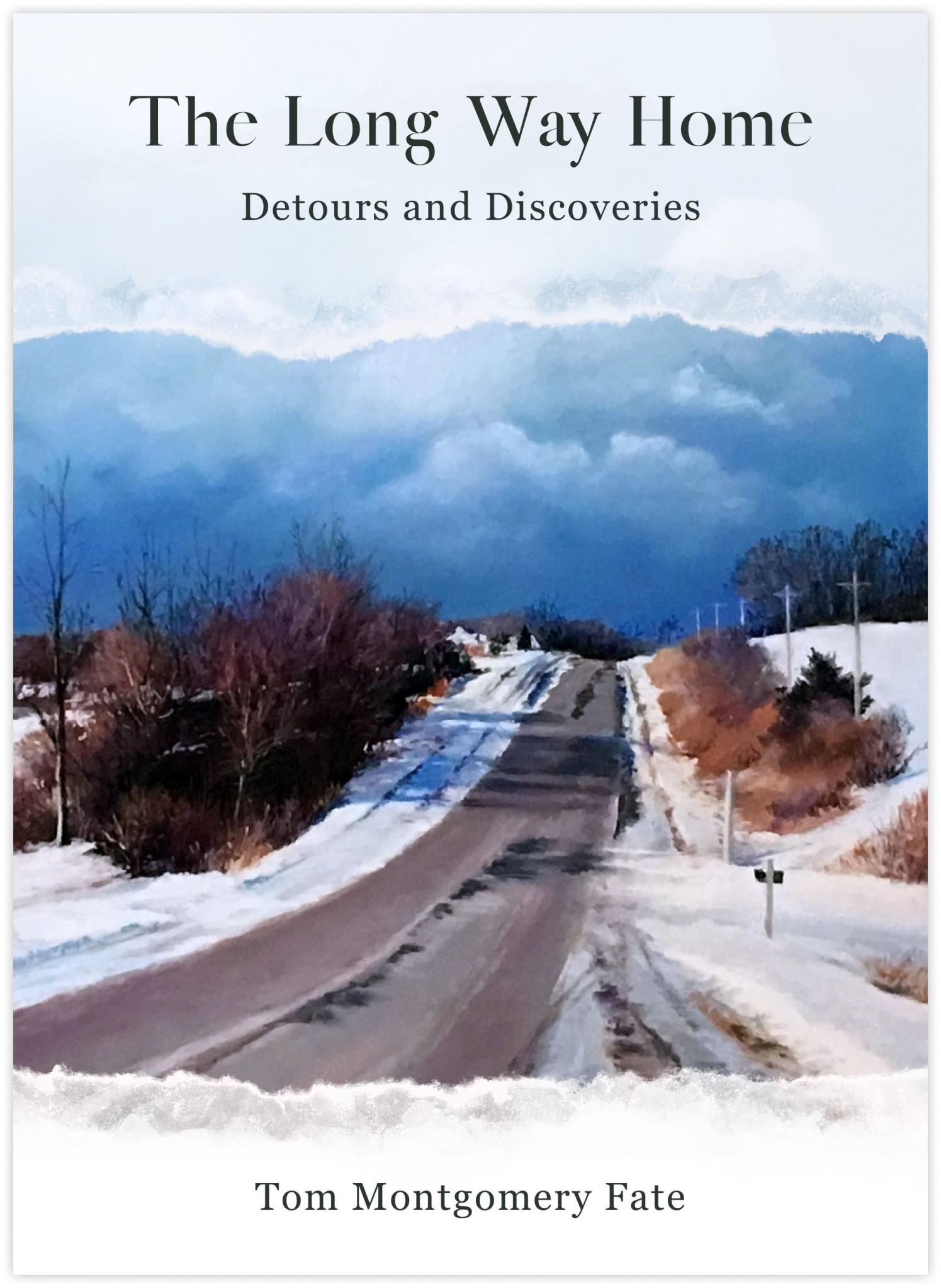Sometimes the sharpest observations of a place come from individuals who don’t reside there—people who visit not as tourists but as temporary observers, seeking understanding rather than snapshots.
Think of Alexis de Tocqueville, the Frenchman who toured America for nine months in 1831 and produced Democracy in America, a two-volume collection of his observations that is still one of the best depictions of the young country in the early 19th century.
Essayist Tom Montgomery Fate’s birthplace and touchstone for interactions with a new world isn’t France but rather Iowa, a flat land full of cornfields where the highest point has an elevation of only 1,670 feet. Yet when Fate was invited to spend two weeks at the HJ Andrews Experimental Forest near Oregon’s Cascade Range in 2017—“to write and walk, and meet a few scientists—hydrologists, botanists, biologists”—he brought with him the same essential tools de Tocqueville traveled with: a keen eye, a discerning mind, and a facility with words.

In the essay Fate wrote about the experience, “Travel that Takes You Home” (which is included in his new collection of essays about places he has visited around the world, The Long Way Home: Detours and Discoveries, Ice Cube Press, 2022), he delineates in precise language and telling detail not only the important research Andrews scientists are doing on things like the evergreen canopy’s protection of ground-level plants from the extremes of climate change, but also the ways in which exposure to a Northwest forest might affect our understanding of what it means to be human.
Here, for example, is Fate’s description of pausing by a creek on a rainy day:
Now I’m sitting on a flat rock in the hard rain listening to the creek. This is my job: to sit in the rain and listen. Were it a deeper stream without rocks or deadfalls or much current, and full of sediment, it would be quiet and still (and more Midwestern). Lookout Creek is crazy fast from three days of rain, and full of rocks and boulders and deadfalls, and so it has a lot to say. Over time, the gurgling water will tumble and dissolve rock, and rot logs and leaves and carry them downstream, along with trout and pine pollen and needles and cones, and bits of moss and lichen. Over time it will reshape its bed and banks and habitat, physically describing its character and history in this forest. Over time it will reflect and respond to climate change and other challenges posed by human beings. Over time, as with all streams and rivers, it will measure and reveal both our culpability and response ability as a species. Over time it will measure who we are.

Over time. That’s two words. Not “overtime.” Not hours or numbers, but a river of light and darkness, of heat and cold. Over time, things change. Some change is dramatic—what ecologists call “a disturbance”—like the rotting 400-year-old Douglas-fir that fell across the creek 30 years ago during a flood. The crashing tree ripped a wide gash in the canopy, prompting slower, less dramatic change below: a thick stand of Alder trees sprung up on the gravel bar amid the flood of new light. When the Doug-fir fell, its bole and branches obstructed and partly dammed the creek, forming a deep pool—where, over time, native trout came to live, and to wait and watch for midges and flies to light on the water.
Waiting and watching. Over time. To stand by a river and go. That rainy day I lingered by the water all afternoon, scrambling around on the slippery rocks like the child I once was—completely lost in the moment—and hoping to see something: a bird, or a snake, or a beetle, or a frog, or anyone who might re-member me, and remind me how I belong.
What might be a common environment to a native Northwesterner, Fate sees as new and full of unique character. He observes not only the pine but the pine pollen, not only the fallen log but the tear it rips in the canopy.
Fate’s new collection is full of such trenchant observations of places like the Pine Ridge Indian Reservation in South Dakota, Quetico Provincial Park in Ontario, Nicaragua, the Philippines, and, yes, Iowa. It’s also full of deeper contemplations of our connections not only to place but also to family, faith, nature, and vulnerable populations.
~~~~~~
To read an earlier, online version of Fate’s Northwest essay, visit the About Place Journal website.
To attend a virtual event at which Fate will read from and discuss his new book, sign up here. You can read more about the event here. It takes place at 5 p.m. PDT on Wednesday, July 20, and registration is required.
To purchase Fate’s book, simply click here or ask your local bookstore to order The Long Way Home: Detours and Discoveries by Tom Montgomery Fate.
For more on Fate and his other books and essays, go to his website, TomFate.com.
~~~~~~
Tom Montgomery Fate is the author of five other books of creative nonfiction, including Cabin Fever, a nature memoir (Beacon Press), and Steady and Trembling, a spiritual memoir (Chalice Press). A regular contributor to the Chicago Tribune, his essays have appeared in the Boston Globe, Baltimore Sun, Orion, The Iowa Review, Christian Century, Fourth Genre, River Teeth, and many others. Dozens of his essays have also aired on NPR, PRI and Chicago Public Radio.
~~~~~~
The Long Way Home: Detours and Discoveries
Tom Montgomery Fate
Ice Cube Press
2022
$19.99

Leave a Reply